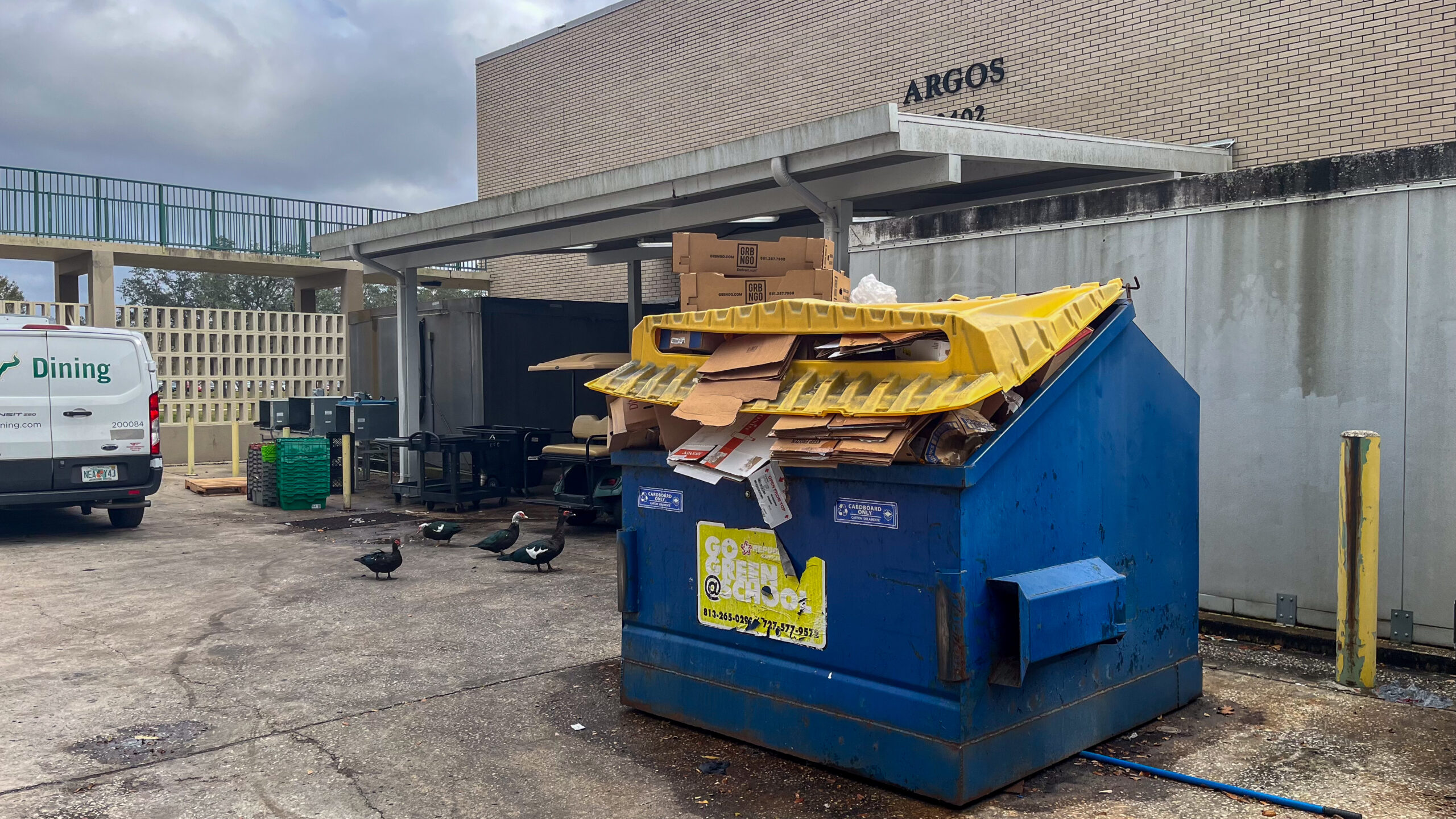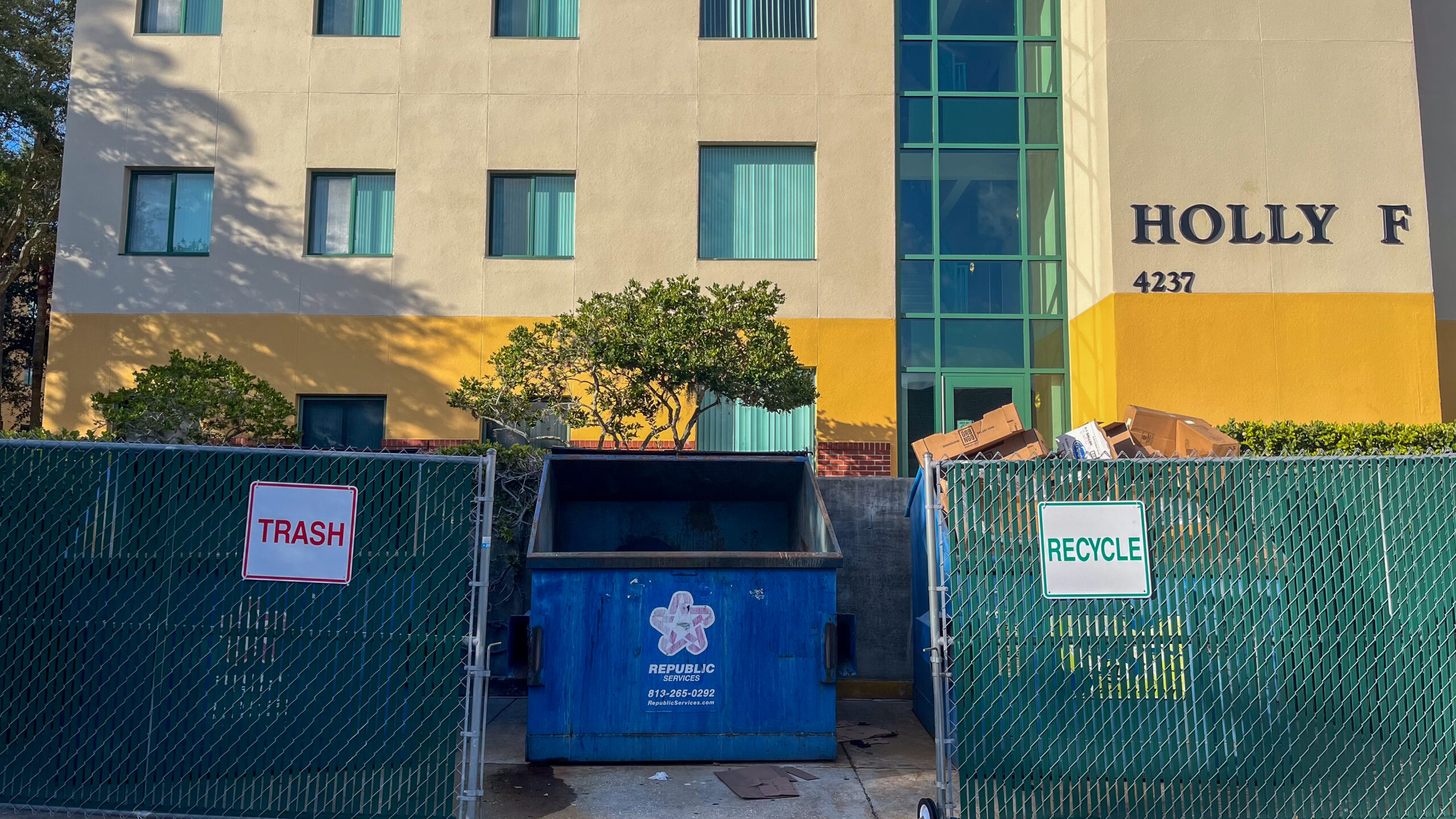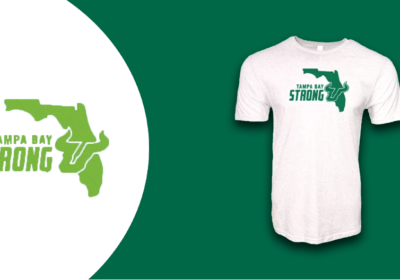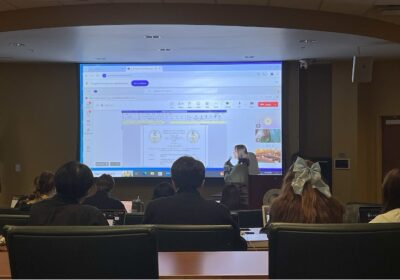Recycling dumpsters are often misused at USF. Why should students care?

If you’re a USF student, you’ve probably noticed multiple big blue recycling dumpsters spread around campus and even utilized them following strict recycling guidelines. Or have you?
An increase in non-recyclable items in USF’s recycling dumpsters was observed by its disposal company in January.
After USF Housing was notified of the issue, an email was sent out to residents on Jan. 27 to ensure they throw trash and recyclables in the appropriate bins, according to Andy Johnson, housing director for operations and outreach.
Johnson said the ‘increase’ doesn’t mean recycling dumpsters are overflowing with waste, but that contaminants and recyclables are being mixed together more frequently.
“It spoils the whole recycling piece of it,” Johnson said. “They can’t really separate it out once it becomes mixed, so it ends up just going into the trash pile.”
USF Housing’s recycling system allows all recyclables to be placed in a single container, which means lower costs for both the department and students, Johnson said.
This method is more affordable because single-compartment trucks are cheaper to purchase and operate, according to the Housing website.
Related: Is USF affordable? Students say they can barely pay for food, housing
Junior accounting major Maria Gruszczynski said she has seen waste being thrown into recycling dumpsters. She said she thinks that happens because the labels are not well displayed.
“There are gates in front of the dumpsters, with one saying ‘recycle,’ and the other saying ‘trash,’” Gruszczynski said. “The problem is that when the gates are open, people can’t really see which dumpster is which.”

Johnson said USF Housing might follow up with additional signage around the canisters to “remind folks” of which items can be recycled.
The email sent to residents had a list of recyclable and non-recyclable items. Some of the recyclables are cardboard, books and soda cans. Some of the non-recyclables are food, liquid and plastic bags.
A complete list of recyclable and non-recyclable items can be found on the Housing website.
Johnson said there are no disciplinary consequences for residents found violating the recycling guidelines.
“It’s not like I can write somebody up and send them to Student Conduct & Ethical Development for not recycling,” Johnson said. “We try to take a more proactive educational approach to these types of things.”
If a resident was caught throwing a non-recyclable item in the recycling dumpster, Johnson said the educational approach would be having a conversation to let them know what can and can’t be thrown into it.
Johnson said USF Housing will monitor with the disposal company to see if a decrease in waste in recycling dumpsters happens and will send residents a follow-up email.
Although there are no measures in place to enforce recycling guidelines except trying to educate residents, Johnson said USF Housing is always open to having different types of conversations around that.
“We want to create good global citizens of our Earth, so we will do whatever we can do to educate and bring forth new initiatives,” Johnson said. “If students have ideas, we are all ears.”






